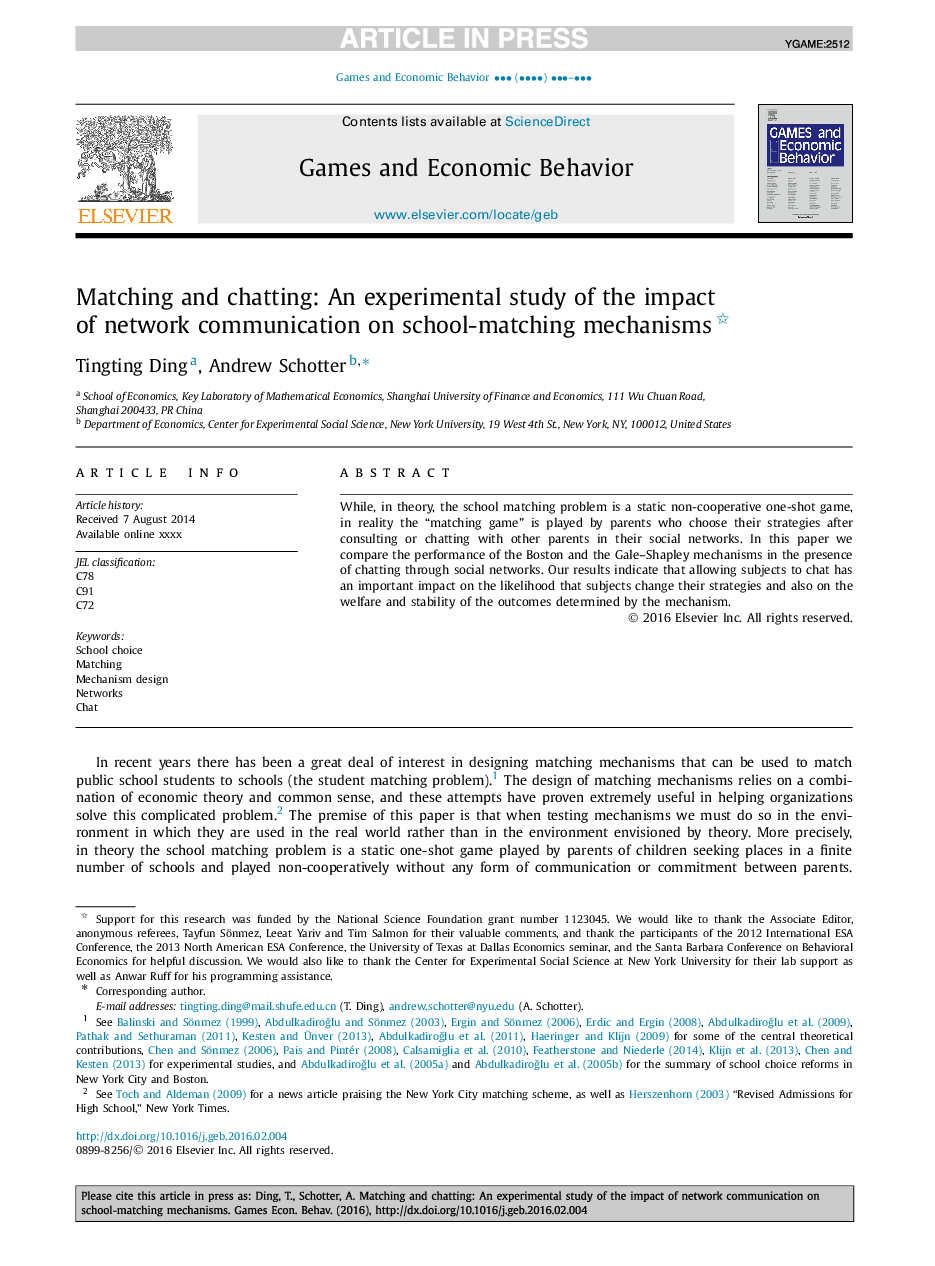| Article ID | Journal | Published Year | Pages | File Type |
|---|---|---|---|---|
| 5071376 | Games and Economic Behavior | 2017 | 22 Pages |
Abstract
While, in theory, the school matching problem is a static non-cooperative one-shot game, in reality the “matching game” is played by parents who choose their strategies after consulting or chatting with other parents in their social networks. In this paper we compare the performance of the Boston and the Gale-Shapley mechanisms in the presence of chatting through social networks. Our results indicate that allowing subjects to chat has an important impact on the likelihood that subjects change their strategies and also on the welfare and stability of the outcomes determined by the mechanism.
Related Topics
Social Sciences and Humanities
Economics, Econometrics and Finance
Economics and Econometrics
Authors
Tingting Ding, Andrew Schotter,
